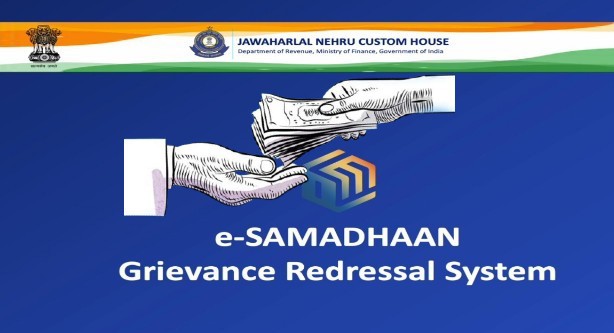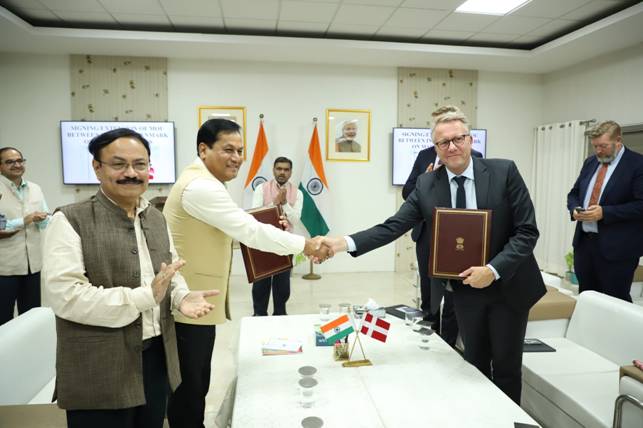A New Era in Ocean Shipping
On February 1, 2024, Maersk A/S (a subsidiary of A.P. Moller – Maersk) and Hapag-Lloyd AG are set to launch their operational collaboration, Gemini Cooperation. This initiative aims to revolutionize global trade by providing a flexible, interconnected ocean network with over 90% schedule reliability once fully phased in.
But what does this mean for global trade, competitors, partner companies, and India’s maritime sector? Let’s analyze.
What is Gemini Cooperation & Why Does it Matter?
Gemini Cooperation is an ocean shipping alliance designed to enhance logistics efficiency and supply chain resilience. The collaboration will include:
✅ 340 vessels operating within a shared network
✅ 29 mainliner services covering East-West trade routes
✅ 28 intraregional shuttle services for enhanced connectivity
The first sailings begin on February 1, 2024, with a full transition expected by June 2024.
“We believe our customers will benefit from increased reliability, flexibility, and more competitive products,” – Johan Sigsgaard, Chief Product Officer, Maersk.
Who Will Benefit from Gemini Cooperation?
This collaboration is a strategic advantage for several stakeholders, including:
1. Global Importers & Exporters
📌 Faster, more reliable delivery times → reduces supply chain disruptions
📌 Lower freight costs (due to economies of scale)
2. Port Operators & Terminals
📌 Better planning & optimized vessel arrivals → reduces congestion
📌 Higher efficiency at transshipment hubs
3. Logistics & Freight Forwarders
📌 More predictable shipping schedules → improves inventory management
📌 Greater flexibility in routing options
4. E-Commerce & Retailers
📌 Ensures timely product deliveries → boosts customer satisfaction
📌 Lower shipping risks → reduces lost sales
Challenges Competitors Will Face
While Gemini Cooperation benefits many, competitors like MSC, CMA CGM, and ONE may face challenges, such as:
❌ Loss of Market Share – Maersk & Hapag-Lloyd’s improved network may attract major shippers.
❌ Increased Pricing Pressure – Other carriers may need to cut rates to compete.
❌ Network Redesign Needs – Competitors must enhance their logistics models to match Gemini’s efficiency.
Short-Term & Long-Term Impact on Partner Companies
Short-Term Effects (2025-2026)
✔ Disruptions during the transition period (until June 2024)
✔ Potential cost savings for shippers as operations become more efficient
✔ Shifts in alliances as carriers react to Gemini Cooperation’s influence
Long-Term Effects (2026 & Beyond)
✔ Stable & predictable shipping costs
✔ Global trade efficiency boost → reduced bottlenecks & delays
✔ Greater digital integration with AI-powered logistics tracking
Impact on India’s Maritime Industry
India, a rapidly growing trade hub, will experience both opportunities & challenges:
✔ Opportunities:
🚢 More reliable East-West trade lanes → boosts India’s EXIM trade
🏭 Better connectivity for Indian manufacturers → enhances global competitiveness
🌊 Potential for new port investments in JNPT, Chennai, Vizag, and Mundra
❌ Challenges:
💰 Port Infrastructure Readiness – India must invest in automation & efficiency.
📊 Regulatory Adjustments – Government agencies must align customs & clearance processes to match Gemini’s rapid network.
Is the Indian Government Supporting or Creating Hurdles?
The Indian government has introduced initiatives like Sagarmala & Gati Shakti, focusing on port modernization. However, hurdles remain:
✅ Positive Steps Taken:
✔ Faster customs clearance through ICEGATE & digitalization
✔ Investment in deepwater ports & multimodal logistics parks
❌ Challenges & Roadblocks:
🚧 Bureaucratic delays in port approvals
🚧 High logistics costs (India’s logistics costs = 14% of GDP, compared to 8% in China)
🚧 Need for stronger trade agreements to maximize Gemini’s benefits
For India to fully leverage Gemini Cooperation, policy reforms & faster implementation of infrastructure projects are essential.
Final Verdict: How Gemini Cooperation Will Transform Shipping
Gemini Cooperation is set to reshape global logistics with its reliable, flexible ocean network.
🔹 Winners:
✔ Global exporters, logistics providers, Indian manufacturers, e-commerce giants.
🔹 Losers:
❌ Competitor shipping lines struggling to match Maersk & Hapag-Lloyd’s efficiency.
🔹 What India Needs to Do:
⚡ Invest in port automation & connectivity
⚡ Strengthen trade-friendly policies
⚡ Reduce logistics costs to stay competitive
What’s Next?
The success of Gemini Cooperation depends on seamless execution & industry adaptation.
🔹 Will competitors adjust their strategies?
🔹 Can India modernize its logistics to stay competitive?
🔹 How will global trade patterns shift post-2024?
Stay tuned for further updates on maritime trends, logistics innovations & global trade disruptions.
📢 What are your thoughts? Will Gemini Cooperation be a game-changer? Share in the comments!




